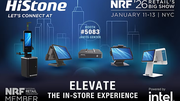Blog
Buyers behave irrationally
June 5, 2012 by Dale Furtwengler — President, Furtwengler & Associates, P.C.
Ruti Levy, in her Haaretz.com article "Building blocks of high prices," cited the fact that Israelis are paying 3 to 3.5 times what they would online for Legos. Even when you factor in shipping and taxes, these buyers are paying more than 60 percent higher prices for the same Lego sets they could get online. The question on everyone's mind is, "Why?"
It would be nice to be able to point to a single factor, but it appears that there are three at work in Lego's favor:
- Brand image
- Impulse buy
- Children
Brand image
According to Ms. Levy, a Market Watch survey showed that Israelis ranked Lego #2 in the category of high-quality brands. Buyers around the world have demonstrated a willingness to pay multiples over the lowest-priced alternative. That's true within a company's offerings as well as against competitors' offerings. Here are a few examples.
The Toyota Yaris retails for $14,000 while Toyota's Avalon costs over $33,000. The smallest S-class Mercedes sedan is $91,000+. When viewed this way, the premium Lego is getting doesn't seem all that surprising.
Impulse buy
Most consumers want what they want when they want it. There's something about an impulse buy that triggers an emotional high. That emotion is lost when you have to wait weeks, or even days, to get what you want. As buyers we pay a premium to get that high.
Children
While many of us big kids love to play with Legos, there isn't a more persistent creature in the world than a small child when it comes to expressing desires. As parents, who among us hasn't at one time or another caved to these requests because we just didn't have the energy to resist?
Lesson
Ms. Levy offered us some great insights in her article.
- Being known for consistently high quality increases the desire buyers have for your offerings as well as the premium they're willing to pay.
- Instant gratification also commands a premium.
- Appeal to the influencers in people's lives and you'll increase the premiums they're willing to pay.
So when you're crafting your next marketing message don't forget to:
- Tout your brand promise - shout it from the rooftops!
- Make it easy for those buyers to get what they want NOW.
- Include family members in your message to encourage buyers to act.
 ChatGPT
ChatGPT Grok
Grok Perplexity
Perplexity Claude
Claude




